IRB Profiles
-
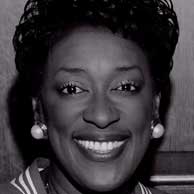
Boyd, Gwendolyn E.
Engineer for diversity
Boyd,
Gwendolyn E.

Boyd, Gwendolyn E.
Engineer for diversity
As the first black person to earn a master’s degree in mechanical engineering from Yale University, Gwen Boyd is determined to encourage greater diversity in the field.
Boyd joined the Johns Hopkins University Applied Physics Laboratory as a team engineer in 1980, served as assistant for development programs (coordinating all external programs including research at other universities) and is now executive assistant to the APL chief of staff.
Boyd helped establish the APL Technology Leadership Scholars Program, as well as the ATLAS Summer Internship Program for Historically Black Colleges and Universities, Hispanic-Serving Institutions and Minority Institutions. She was named chair of the Johns Hopkins Institutions Diversity Leadership Council, and in 2010 President Obama appointed her to the board of the Barry Goldwater Scholarship and Excellence in Education Foundation.
-
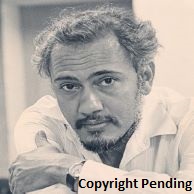
Boxer, David
Distinguished scholar and champion of Jamaican art
Boxer,
David

Boxer, David
Distinguished scholar and champion of Jamaican art
Art historian David Boxer was just twenty-nine years old when, in 1975, having just completed his dissertation at Johns Hopkins, he returned to his native Jamaica to become director and curator of the newly established National Gallery of Jamaica. His doctoral studies at Homewood had concentrated on the modernist painter Francis Bacon, one of the most important British painters of the twentieth century, whom Boxer had spent two weeks interviewing the previous year. Bacon’s psychologically intense, semi-abstract figurative imagery later influenced Boxer’s artistic efforts, which included paintings, collages, and mixed-media installations—often depicting literary and history-related themes, including slavery.
Substantially broadening his fellow Jamaicans’ understanding of their own culture, Boxer’s first exhibition for the National Gallery portrayed Five Centuries of Art in Jamaica, where he argued that art on the island had a much longer history than had been recognized previously. By the time he stepped down as director in 2013, Boxer had mounted more than fifty major exhibitions of Jamaican art, including one for the Smithsonian in 1983 that later formed the basis for the National Gallery of Jamaica’s first permanent exhibition. Boxer also steered the expansion of the museum’s holdings from about 230 works in 1974 to more than two thousand.
As a private collector, David Boxer amassed one of the most comprehensive collections of Jamaican art, photography, and furniture, as well as an exceptional collection of rare art books. Boxer also encouraged the efforts of Jamaica’s untrained, self-taught artists who created their paintings, sculptures, and carvings in the rural towns and villages where they lived. He called them “Intuitives,” and believed they helped to shape Jamaica’s national cultural identity. “Theirs is not ‘art for art’s sake,” he maintained, “but rather, as someone once described African art, ‘art for life’s sake.’”
Regarded as a leading scholar of art in the Caribbean region and arguably the most eminent authority of Jamaican art, Boxer left a distinguished legacy. In August 2016, Jamaica’s prime minister bestowed the Order of Jamaica (considered the equivalent of British knighthood) on David Boxer, acknowledging that he was being recognized “not just his personal artistic genius but even more so for what you have done for countless others in your unyielding passion to foster the growth of Jamaican art.” Writing about his “colleague, mentor, and friend” not long before Boxer died, art historian Edward M. Gomez declared Boxer “a towering figure in the recent intellectual history of the Caribbean region, whose work as an educator and activist helped shape the modern cultural identity of his small nation in the post-colonial era.” In their final conversation Boxer told Gomez, “We make art because we have—or we think we have—something to say and because we hope that, somehow, it will endure.” The pioneering researcher, thinker, collector, teacher, and working artist was seventy-one years old when he died at the end of May 2017.
-
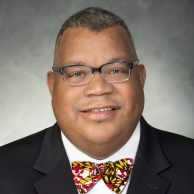
Branch, Gregory
Building Bridges, Blending Voices
Branch,
Gregory

Branch, Gregory
Building Bridges, Blending Voices
Growing up in the projects in New York City, Gregory Branch witnessed many traumatic events. Those childhood experiences in Brooklyn, combined with the education he received from the Xavierian Brothers, stimulated a deep desire to help others. It was an encounter in 1988, however, while at medical school at SUNY Buffalo that really focused his imagination and inspired Branch to excel in all his endeavors. That year, he and his fellow first year students invited the newly famous Dr. Ben Carson to come from Johns Hopkins to speak. “If you want to be competitive,” Carson emphasized, “you must do well in medical school.” Branch took Carson’s advice to heart. “I was so inspired; if you look at my grades, you’ll see that from that time on, I went from high satisfactory to honors.” He went on to graduate magna cum laude.
When he arrived at Johns Hopkins to begin his internship in internal medicine, Branch came under the influence of cardiac surgeon Levi Watkins, who took particular interest in mentoring fellow African American doctors as they learned their way around medical institutions. “Levi Watkins was bigger than life,” Branch remembers. “He was proud to be an African American physician and made it okay for others. Levi spoke to power and called a spade a spade. He challenged Hopkins to invest more in black and brown students.” Branch acknowledged, “Even when Dr. Watkins was chastising me, I could feel his love and I knew he was supporting me.”
Branch encountered plenty of prejudice in the hospital as a young doctor, sometimes being questioned about his credentials and qualifications by professional colleagues. Others, however, championed him. “The black and brown members of the staff did anything and everything they could to support me because they were so proud I was there as a doctor. That’s how Unified Voices got started.” When too many people signed up to sing at an annual talent show in 1993, Branch suggested they become a choir. Their success inspired continued practice and today, among his many other responsibilities, Branch still directs more than ninety participants—composed of administrators, employees, faculty, students, and local residents—as they blend their talents to sing songs of hope, health, and healing while building bridges between the medical institution and their neighbors. “We hope that through our songs and performances someone’s spirit will be lifted,” Dr. Branch says. As the group’s motto proclaims, “Where there is unity, there is strength.”
After completing his residency, also at Hopkins, Branch became the lead physician and director of laboratory services at the Johns Hopkins East Baltimore Medical Center. When he became chief medical officer for a private practice with multiple offices in Washington, DC, he discovered that “administration is one of my spiritual gifts,” and joined the first cohort to earn masters of business administration degrees from the University of Baltimore, completing the program in 1999. With this new credential, Branch returned to Baltimore and assumed the medical directorship of Baltimore Medical Systems Inc.’s Middlesex and Highlandtown clinics, then worked for the Maryland Physicians Care and Maryland Health Insurance Plan for several years. There his communication skills enabled Branch to educate physicians to achieve positive outcomes and minimize frustration; that efficiency, including his efforts to computerize the processing of records, became a model for the entire company.
Since 2008, Dr. Branch has led the Baltimore County Department of Health. He now manages more than fifteen hundred employees responsible for clinical services, community health services, behavioral and mental health services, environmental health, animal services, child and adult welfare services, animal services, medical and energy assistance, and the Section-8 housing voucher program. He is also the Health Officer for Baltimore County and is responsible for the County’s COVID-19 mitigation effort. Branch, whose degrees and professional credentials include M.D., MBA, Certified Physician Executive (CPE)and Fellow of the American College of Physicians (FACP), is also an instructor for both the Johns Hopkins Bloomberg School of Public Health and the School of Medicine’s Department of Internal Medicine. Branch directs its Urban Medical Residents Public Health Rotation. He is also the past Board President of Project P.L.A.S.E. (People Lacking Adequate Shelter and Employment), and annually hosts a much anticipated, widely attended fund raiser for the organization at his home.
-
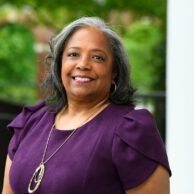
Breckenridge, Adriene
Academic Advisor and Campus Minister
Breckenridge,
Adriene

Breckenridge, Adriene
Academic Advisor and Campus Minister
When Adriene Breckenridge walked into her retirement party in January 2024, she was surprised to see a row of faces from her past: former students she’d worked with closely during her 28 years as an academic advisor and campus minister at Johns Hopkins University.
The JHU alumni bestowed Breckenridge with testimonials on how she’d affected their lives and careers, with two of them performing the Gospel song “You Are My Hero.”
“I was crying the whole time,” Breckenridge says.
Breckenridge first joined Johns Hopkins in 1995 after finishing seminary school. Her role was one the Black Student Union had explicitly urged for a few years earlier, seeking an academic advisor on staff who could relate to them. “It’s very typical for Black students to feel like they have nowhere to go in that environment, and I could provide a home,” says Breckenridge, who’s often called “Ms. B” or “Rev. B.”
In this role, Breckenridge would meet with dozens—during some semesters, up to 150—freshmen each semester, coaching them on their academic success and future career paths.
Becoming aware of a glaring deficit in the health fields, Breckenridge helped launch the Minority Pre-Health Conference at Johns Hopkins in 1999. For 11 years, the event—considered a precursor to JUMP—offered workshops and networking opportunities for students underrepresented in jobs in health and medicine. At the peak more than 150 students were participating, and 55 schools with health programs.
In the conference’s later years, Breckenridge would sometimes see students who’d once attended come back as physicians, nurses, or dentists ready to mentor. “That was the coolest thing ever,” she says.
Breckenridge was also a lifetime member of the Black Faculty and Staff Association at Hopkins, participating since its 1995 inception. She held various leadership roles in the group, including Homewood caucus rep, secretary of the executive board, chair of professional development, and parliamentarian.
Along with her academic support Breckenridge provided a spiritual home base for Hopkins students who sought it. She served as an advisor to the JHU Gospel Choir and launched a Bible study group that eventually formalized as the Beloved College Community Fellowship, holding worship services in Shaffer Hall every Sunday. The effort lasted from the late 1990s until the COVID-19 pandemic. “We’d always do a big dinner Easter Sunday,” Breckenridge says.
Born and raised in Washington, Breckenridge earned her bachelor’s in psychology at the University of Washington, then her master’s of divinity from Howard University. She earned her master’s in clinical counseling at Johns Hopkins while working there, as well as a certificate in human-centered life design, among others. At Hopkins, she also served on the board of the chaplain and as an advisor to the JHU Gospel Choir.
Breckenridge says she didn’t realize the dent she’d made at Johns Hopkins until she retired, when so many people from the past emerged to thank her. “I was thrilled at this point of my career to see this,” she says. “I feel like my work was not in vain.”
-
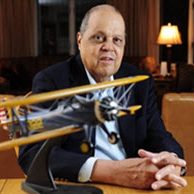
Bromery, Randolph W.
Tireless educator, benefactor, explorer
Bromery,
Randolph W.

Bromery, Randolph W.
Tireless educator, benefactor, explorer
Randolph W. “Bill” Bromery was a man of multiple talents and careers. After serving as a Tuskegee Airman during World War II, he drew on his flight training to become an airborne exploration geophysicist with the United States Geological Survey (USGS), beginning in 1948. During that time, Bromery was involved with projects mapping large sections of the United States (including Alaska) and West Africa, and rose to the level of branch chief. Remarkably, over his twenty years with the USGS, Bromery also secured a bachelor’s degree in mathematics and physics from Howard University, in 1956; a master’s degree in geology and geophysics at American University, in 1962; and a PhD in geology and oceanography from Johns Hopkins, in 1968.
Keith Bromery recalls his father “as a tireless individual who was often up before dawn and off to work before his children were out of bed. The Hopkins days were long and seemingly unending for Dad, as he often went from his full-time job as a geophysicist at the USGS, working out of the local regional branch office in Bethesda,” then commuting several evenings each week to the Homewood campus. “When Dad returned home, almost always after sundown, he would warmly greet us and then head upstairs to my mom’s and his bedroom to read, study, and write. This activity continued well into the night, long after his kids were asleep.”
As one of the first African-American geophysicists with full academic credentials, Bromery was soon recruited by the University of Massachusetts at Amherst. Upon joining the faculty in 1967, he helped spearhead an effort to enroll and support more minority students. Just three years later he became the campus’s first vice chancellor of student affairs and, in 1972, Bromery was named chancellor. Under his leadership, UMass Amherst successfully increased efforts to attract women and minorities—both as students and faculty—and became an early center for African-American Studies. He returned to teaching and advising doctoral candidates in 1979, then served as interim president or president at several colleges in Alabama and Massachusetts between 1988 and 2003. He also served on the board of directors of numerous corporations, including ExxonMobil and the Singer Company.
The Geological Society of America elected Randolph Bromery president in 1989; his portrait hangs on permanent display in the National Academy of Science in Washington, DC. He received honorary degrees from nine colleges and universities, including a doctor of humane letters degree in 2003 from Johns Hopkins, where he also served on the board of trustees from 1986 to 1994. Before his death in 2013, he and his wife, Cecile, funded the Bromery Community Scholarship Fund and the Graduate Fellowship Fund at the University of Massachusetts. At JHU, they established an endowed fellowship in Dr. Bromery’s name to provide equal access to graduate education for students from underrepresented minorities in the Department of Earth and Planetary Sciences, as well as a weekly series of departmental seminars to bring distinguished scientists to the Homewood campus (both from government and from other universities around the US) to deliver lectures on their research.
-
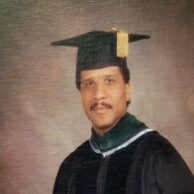
Brown, Kenneth
Mentor and Physician - 2024 Inductee
Brown,
Kenneth

Brown, Kenneth
Mentor and Physician - 2024 Inductee
In 1966, Kenneth Brown was the starting defensive lineman at Johns Hopkins University, a young man from New York on his path to study medicine. He was also one of only a few Black students at the university at the time, and his attempt to get a haircut inadvertently sparked a social justice movement.
When Brown approached a barbershop in The Marylander building, the manager refused him service and used a racial slur. Inflamed by the incident, a group of about 75 Hopkins students congregated under Brown’s lead. They delivered an ultimatum to the shop: Start serving Black clients, or face picketing and boycotting of the business.
The pressure led to change, with the barbershop ultimately welcoming the Black students and residents of Charles Village and hiring a Black barber. Brown’s experience is considered a precursor to the founding of the Black Student Union on the Hopkins campus three years later.
“In those days there were essentially no African American faculty members at Hopkins, and Black students like me looked up to those ahead of us to lead the way,” said one friend, Robert Hyde III, at Brown’s 2022 memorial service. “Ken was easy to like and admire.”
Born in Jamaica, Queens, in 1949, Brown aspired to become a physician from an early age. After graduating from Johns Hopkins in 1970, he studied medicine at Tufts University, where he was an organizer and president of the Student National Medical Association, a support group for underrepresented medical school students.
In his adult life, Brown settled in Washington, D.C., where he became the first Black gastroenterologist at the Washington Hospital Center, then chief of gastroenterology at Providence Hospital. He also set up his own private practice in 1981, and in the 2000s established the independent surgery center Capital Endoscopy, now operated by MedStar Health.
“There was no doubt that his compassion for the health needs of citizens of the District was not only passionate but informed,” recalled mentor and friend Vivian Pinn at Brown’s memorial. “All you had to do was to bring up the topic of declining medical facilities in some quarters of the District to receive … a very intense and most concerned discourse on the politics, disparities, and needs of those communities.”
Brown married Terese Thomas Brown, also a physician, in 1985, and together they raised three daughters.
Family and friends remember Brown as an adventurous world traveler, amateur historian, masterful chef, engaged activist, and devoted husband, father, and grandfather. At his memorial service, several peers from Brown’s time at Johns Hopkins showed up, recalling his strength as a student and an athlete (he played basketball and lacrosse in addition to football) as well as his humor and steady friendship.
Following her husband’s death, Terese took over his former vehicle. “I’d never noticed before,” she says, “but I realized he still had the Hopkins Blue Jay sticker on his plates.”
-

Burdnell, Karen Freeman
Teller of stories and grower of imaginations
Burdnell,
Karen Freeman

Burdnell, Karen Freeman
Teller of stories and grower of imaginations
One of the signature stories Karen Freeman Burdnell tells is that of her first — and worst — Afro haircut while she was a freshman at Johns Hopkins University. As she walked across campus that day, she believes she ran into just about every other black freshman on campus and that each one of them had something to say about her hair, from offering her hats to cover it up to expressing concern about whether perhaps she had fallen asleep in the barber”s chair.
Telling stories has become a major focus of Burdnell’s life. The daughter of a storyteller, Burdnell first discovered her own talent for storytelling as a teenaged camp counselor. Now telling stories is a part of her work as a children’s librarian for the Enoch Pratt Free Library, and she expects to complete a master’s degree in storytelling from East Tennessee State University by the end of 2012. She is a member of the Griot Circle of Maryland, the National Association of Black Storytellers, and the National Storytelling Network.
“Our imaginations spur and grow through the oral tradition and through telling our own stories,” Burdnell says.
Burdnell’s haircut story reveals the sense of community she felt on the Johns Hopkins campus. She entered the school in the fall of 1970, the first year that Johns Hopkins began accepting female undergraduates, and among the 90 admitted were five black women: Burdnell, two fellow freshmen Shirley Dilsworth and Gail Williams, and two transfer students, Lynn Parker and Barbara Wyche.
While she didn’t live on campus, Burdnell had a rich on-campus life, attending sporting events, working at a candy shop in Levering Hall, and participating in the Black Student Union. Her Baltimore home became a respite for some of the other black students.
As she earned her bachelor’s degree in social and behavioral science at Johns Hopkins, Burdnell learned important lessons including how she could best study and retain information, what her writing strengths are, and how to advocate for herself.
“I knew how to think before I got to Johns Hopkins,” Burdnell concludes, “but the challenging and competitive atmosphere at Johns Hopkins allowed me to test and refine my thinking abilities. They were put to good use there.”
-
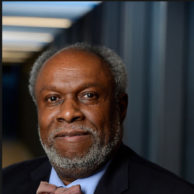
Calvin, James R.
Influential business philosopher
Calvin,
James R.

Calvin, James R.
Influential business philosopher
The issues involved with conducting business globally, managing workplace diversity, developing corporate leaders and using business savvy to transform communities and nonprofit organizations fascinate James W. Calvin. He has devoted his professional career to exploring such topics and to inspiring future business leaders to think beyond the bottom line to consider how business is conducted and how it impacts society.
After earning an undergraduate degree from the Rochester Institute of Technology, Calvin pursued graduate studies at New York University, ultimately earning a doctorate (with distinction). A member of the Johns Hopkins Carey Business School faculty since 1996, he serves as associate professor of management and director of the school’s Leadership Development Program for Minority Managers.
Beyond the classroom, Calvin consults with federal agencies, such as the National Aeronautics and Space Administration and General Services Administration, national and local foundations, nonprofits and several national and international business organizations including Fannie Mae, General Electric, Verizon, KPMG, GENCO, PepsiCo, Xerox Quality Services, the Brookings Institution, QVC Inc., the World Bank and DaimlerChrysler
He contributes as a board member of the Academy of Management, the International Society for the Advancement of Management, The Diversity Leadership Council and the Johns Hopkins Black Faculty and Staff Association as well as on the editorial boards of several national and international journals.
-
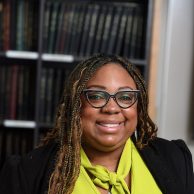
Carter, Carlina
Problem Solver: Behind the Scenes
Carter,
Carlina

Carter, Carlina
Problem Solver: Behind the Scenes
Destiny drew Carlina Carter to Johns Hopkins. After full days as a student at Western High School, she used to hop on light rail, then transfer to the Metro subway so she could meet her mother (who worked then at the Department of Internal Medicine) to catch a ride home. Soon enough, the younger Carter was helping out and on the payroll. She’s worked in East Baltimore ever since, moving through various positions, at the School of Medicine into various positions at the Bloomberg School of Public Health, where she is now the administrator for the Department of Mental Health. Carter’s “expertise, particularly her knowledge of policies and university software, have made her highly sought out for advice and training across our School and into other divisions,” her department chair boasts. “She carries out a highly stressful and dynamic role with professionalism, grace, kindness, and enthusiasm.”
Carter’s rise was gradual, and she gained skills and education throughout her almost twenty-five year career at Johns Hopkins. Along the way she earned a bachelor’s degree in business from the Carey School, and has almost completed a master’s degree from the University of Maryland. Her interactions with investigators and study participants in various research grants sparked an interest in legal issues, prompting her to complete a paralegal program and consider law school. “I used to be shy, but now I like being the point person and working my magic to solve problems,” she says. Carter enjoys facilitating the scholarly research conducted by Johns Hopkins investigators. “I like working behind the scenes, understanding how the money moves around.” She spends her days preparing and administering annual budgets; managing more than $5 million in endowment, discretionary, restricted, and private funds; ensuring compliance for federal and international grants; allocating clinical and office space for faculty and staff; developing departmental policies; and supervising the department’s administrative staff.
“I’ve developed a lot of people skills here,” Carter gratefully asserts. “It feels good to be able to triage difficult situations, to be the person behind the scenes who helps usher grants to completion.” Knowing how to analyze, negotiate, and coordinate both people and money have proved useful as she raised her son, too. “Johns Hopkins is my second home,” she says. “It’s where I thrive and feel most productive.”
-
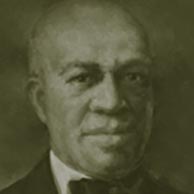
Chambers, Emmanuel
Benefactor of mankind
Chambers,
Emmanuel

Chambers, Emmanuel
Benefactor of mankind
Emmanuel Chambers regarded his work as a waiter at the Baltimore Club as a profession of honor, and his legacy of service continues long after his death. Chambers joined the staff of the Baltimore Club in 1907 and remained with the institution after its merger with the Maryland Club in 1933. He became known not only for his gracious service but also as an on-call personal assistant who could conjure up difficult-to-secure opera and train tickets and could produce forgotten ties and collar buttons. During three decades as a waiter, Chambers lived on his salary and, with the help of a friend, invested his tips, amassing $150,000. After his death in 1945, his will provided for the creation of the Emmanuel Chambers Foundation to use his fortune to benefit the greater Baltimore community. By 1965, the foundation’s holdings were worth more than $500,000, and grants from the foundation had benefited Johns Hopkins Hospital and the Peabody Institute along with other medical facilities and institutions of higher education. Grants to Johns Hopkins Hospital supported assistantships and work with “colored persons,” and grants to Peabody funded scholarships. In honor of his largesse, 20 years after his death, Chambers was honored with a portrait to hang in Johns Hopkins Hospital. At the unveiling, Stuart Olivier, a bank official and then president of the Chambers Foundation said of Chambers, “His life speaks for itself. He was dedicated to the service of mankind while he lived, and his will is just a continuance. He had no education, was no bank president nor president of a university, but during his life he had a fortune larger than the combined membership of the club members he waited on.”
-
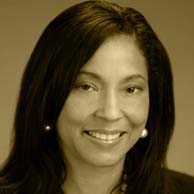
Clayton, Janine Austin
Physician/scientist and dedicated mentor
Clayton,
Janine Austin

Clayton, Janine Austin
Physician/scientist and dedicated mentor
A self-described nerd, Janine Austin Clayton arrived at Johns Hopkins University as a freshman knowing exactly what she wanted to get out of her education at the school. She dove into her coursework and balanced her academic pursuits with dance classes at the Peabody Institute, and trips to nearby museums. Clayton was aware that she was one of a small number of African American students on campus, but she was not fixated on it. Her focus was on a degree, and a career in medicine and science. Thoughts of paving the way for other blacks at Hopkins would come later. She volunteered at Johns Hopkins Hospital in the neonatal unit, she worked for the psychology department and she pledged Alpha Kappa Alpha sorority.
As a student studying natural sciences, she valued the time she spent conducting research and working in labs – opportunities not usually afforded undergraduate students on many college campuses. That research experience combined with the policy side of medicine would serve her well in her career as a physician/scientist, and top government health official. Clayton, a board certified ophthalmologist, and director of the Office of Women’s Health at the National Institutes of Health, is an authority on eye diseases and an advocate for the inclusion of female animals and cells in preclinical research design. Her specialties include sex and gender in health and disease, global women’s health, public health and women’s eye health.
Clayton graduated from Hopkins in 1984, and from Howard University College of Medicine in 1989. She completed her residency at the Medical College of Virginia in 1993, followed by
fellowships with the Johns Hopkins University Wilmer Eye Institute and the National Eye Institute. An authority on autoimmune ocular diseases, and the role of sex and gender in health and disease, she has authored more than 80 scientific publications, journals and book chapters.
Along with her husband, Robert B. Clayton, a successful attorney who also graduated from Hopkins in 1984, Janine Clayton has remained close to her alma mater, serving on the Alumni Council and with the Society of Black Alumni (SOBA), and participating in the mentoring, recruitment and enhancement of the black student experience on campus.
Giving back to the university is important to Clayton. Equally important is the chance to be a role model to young African American students at Hopkins – the students who would follow her and experience the same academic rigor and social ups and downs that she faced as a black undergrad at JHU. “We want to see them do well and to let them know they don’t have to be one way at Hopkins.”
In Johns Hopkins University, Clayton found an environment where she could nurture her desire to become a doctor while indulging her creative side. In Clayton, the university produced a bright and thoughtful young woman dedicated to both her career, and the African American students who would come after her.
-
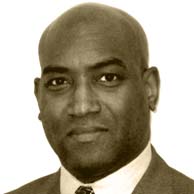
Clayton, Robert B
Accomplished litigator and dedicated mentor
Clayton,
Robert B

Clayton, Robert B
Accomplished litigator and dedicated mentor
By any measure, Robert B. Clayton was a model Johns Hopkins University student. A member of the Black Student Union, Alpha Phi Alpha fraternity, and four-year member of the varsity basketball team, including two years as captain, he was as passionate about his extracurricular activities as he was about his academic pursuits. From his first days on campus, Clayton noticed the lack of diversity. The group of 35 African Americans who matriculated along with him made the transition to the mostly white Hopkins manageable – even memorable. Upon his graduation in 1984, Clayton went on to earn a law degree from the University of Michigan in 1987, and start a successful family law and civil litigation career in Los Angeles where he commutes from the home he shares in Maryland with his wife, Dr. Janine Clayton, an ophthalmologist, and fellow Hopkins graduate.
Clayton’s accomplishments are many. Through his law practice, he has handled an extensive portfolio of family law cases in his representation of high-profile clients, including a number of well-known celebrities and professional athletes. In 1994, he was voted “Lawyer of the Year” by Freedom Magazine, a southern California publication serving Los Angeles’ African American community. He is a longtime member of the Pasadena Tournament of Roses Association, which produces the annual Rose Parade and Rose Bowl Game. While building his professional career, Clayton has remained active in his alma mater, serving on the National Alumni Schools Committee the Second Decade Society, and the Alumni Council Executive Committee. He has provided insights on key Hopkins strategic initiatives such as the formation of the Center for African Studies.
For all of his accomplishments, it is his service to his alma mater, especially to the university’s African American students and alumni that holds a special place in his heart. He is particularly proud of his work with the Johns Hopkins Society of Black Alumni (SOBA) with which he served as one of its inaugural committee members in 1994. He went on to serve as its vice president and is now the group’s longest serving president, having taken on the role in 2002. During this time, he oversaw the installation of the inaugural SOBA Presidential Professor, the naming of the first SOBA scholarship recipient. He also helped form the Men of Color Hopkins Alliance (MOCHA), a mentoring program for male students of color at Hopkins. He often tells those young men and other students of color that they can do it all at Hopkins and not be excluded based on their race. “I don’t want the students who come after me to have a bad experience.”
-
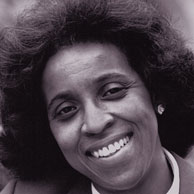
Cline, Eileen Tate
Dragon-slaying music maker
Cline,
Eileen Tate

Cline, Eileen Tate
Dragon-slaying music maker
The idea that the arts are integral to humanity shaped Eileen Cline’s life and her tenure as the dean of the Peabody Conservatory. “So many children, by the time they are 5 or 6 years old, think that the arts are only about being able to draw and sing at a level possible only for a ‘chosen’ few,” she has said. “I would like to do whatever I can to slay those dragons.”
An accomplished pianist, folk dancer and singer, Cline, now retired, dedicated her career to expanding arts opportunities for others. She taught music at the elementary, high school and university levels, owned a piano studio, founded the Boulder Children’s Choir and served as executive director of the Neighborhood Music School in New Haven, Connecticut.
In 1983, Cline became the first black to be appointed dean of the Peabody Conservatory and the only woman dean, at that time, of a major American conservatory of music. Cline’s dedication to inclusiveness enriched and expanded the Peabody community.
When her tenure ended in 1995, Cline continued to serve Johns Hopkins for four additional years as a senior university fellow in arts policy at the Institute for Policy Studies, and to influence music education policy through her membership on the boards for the National Endowment for the Arts and the American Symphony Orchestra League.
-
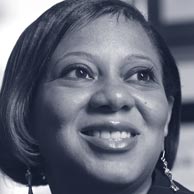
Cooper, Lisa A.
Genius for medical equity
Cooper,
Lisa A.

Cooper, Lisa A.
Genius for medical equity
Lisa Cooper asks questions and finds answers that cause the medical community to refine its practices. From what she refers to as her “exemplary professional home” at Johns Hopkins, Cooper, an internist, epidemiologist and professor in the Division of General Internal Medicine, conducts landmark studies on racial and ethnic disparities in disease prevalence and risk and care delivery. In one study, she and her colleagues found that African-American patients treated by African-American physicians are more assertive and involved in their own care than those treated by white physicians. Another study showed that cultural and social factors strongly influence whether and where people seek help for mental illness.
In recognition of her promise, The John D. and Catherine T. MacArthur Foundation awarded her a $500,000 unrestricted “genius grant” in 2007. She also has a Mid-Career Investigator Award for Patient-Oriented Research in Cardiovascular Health Disparities from the National Heart, Lung and Blood Institute and is the principal investigator for the Johns Hopkins Center to Eliminate Cardiovascular Health Disparities.
According to Myron E. Weisfeldt, chairman of the Johns Hopkins Department of Medicine, Cooper’s work is essential as the medical community strives to deliver high-quality care to an increasingly diverse patient population. “The best physicians are going to be those who understand the purpose and the substance of Lisa Cooper’s scholarship and her extraordinary understanding of clinical care,” he said. “There’s no question that her work will inspire generations to come of doctors and doctors-in-training.”
-
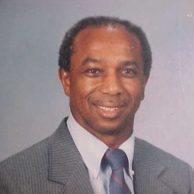
Cross, James
Engineering a Life of Service
Cross,
James

Cross, James
Engineering a Life of Service
Electrical engineering caught James Cross’s imagination at an early age, and teachers at his segregated high school in Hampton, Virginia, nurtured that curiosity. He applied only to colleges and universities offering engineering programs and was accepted by several, but the bid from Johns Hopkins was the most generous, offering a sizeable scholarship that was supplemented by the National Scholarship Service & Fund for Negro Students. As one of the first African American undergraduates on the Homewood campus, Cross was often asked why he chose Hopkins. His response: “Hopkins chose me.”
Cross was a busy undergraduate. He played football his freshman year, but it was his prowess on the track team that helped assure continued scholarship funding. He maintained a job in the cafeteria all four years and entered the ROTC program, which provided a reliable income of $22 a month for the first two years and $52 a month the last two years. “Between ROTC and working, I always had some spending change,” he recalls. But, he also admits, “It was very challenging keeping up with my studies. I was tired all the time.” He also recognized needs and found solutions, as he and a classmate had a telephone installed in their room, permitting other students to use it at half the cost of the only pay phone in their dormitory. He similarly collected enough money to purchase a television set for the dorm.
Participation in ROTC meant a two-year commitment for active duty and five years of reserve duty in the US Army. Cross served in a Mapping and Engineering Intelligent Unit at the United States Army Headquarters in Heidelberg, Germany when the Berlin wall was being constructed. He was in charge of a map depot there, with fifty American soldiers and twenty German civilians under his command. His second year was spent at the Engineering Intelligence Center where he evaluated reports and maintained files on all of the bridges in East Germany.
Ten days after leaving Germany, in September 1962, Cross joined the faculty of the relatively new Department of Electrical Engineering at Southern University in Louisiana. Two years later, he became department chairman, a position he held for 27 years. At the same time, he continued his own education at Louisiana State University, becoming the first Black student to receive a master’s degree in engineering there. He notes, “As a Johns Hopkins graduate, I had respect from the faculty when in graduate school. While in graduate school at the University of Florida, I was also listed as a faculty member and while in graduate school at LSU, I was listed as an instructor when teaching a laboratory.”
Cross’s career made a radical turn after frustrating attempts to secure a PhD in electrical engineering at two different universities. “There were no Black students in the engineering PhD programs,” he explains, “and it became quite apparent that I wasn’t going to change that. So, having an interest in religion, I eventually became a student at Christian Bible College of Baton Rouge, earning a bachelor’s, master’s, and a doctorate degree in theology.” Cross has been a part-time member of the faculty there since 1983, where he feels “blessed to be able to teach church pastors.”
Community programs and activities keep Cross involved in a wide variety of concerns. Participation with a Citizen Advisory Board for a Housing and Urban Development community improvement program resulted in an invitation to present a paper at an international housing conference in Saudi Arabia. Cross currently serves on the board of directors of both the Louisiana and the Baton Rouge Councils on Human Relations, and on the Fire and Police Civil Service Board for the City of Baker, Louisiana. “Johns Hopkins,” he says, “prepared me well for a career of service and a life well lived.”
Dr. Cross was selected to participate in the Hopkins Oral History Project. Listen to his interview.
-
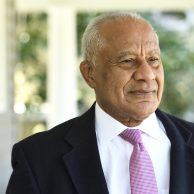
Dates, Victor
Trailblazer: Homewood Hero
Dates,
Victor

Dates, Victor
Trailblazer: Homewood Hero
Victor Dates came to Johns Hopkins in 1956 as a day student. The Baltimore native recalls undergraduate life as intellectually stimulating, a time when he made lifelong friends and contacts. “I like Johns Hopkins,” he says. “It did well for me, particularly my psychological growth.” Hopkins liked Dates, too, apparently, because in 1966—after he had secured a law degree from Georgetown University Law Center and served for two years in the US Army—JHU President Milton Eisenhower invited Dates back to the Homewood campus to assume a newly created position. The Baltimore Sun reported then that Dates was “the first Negro to hold a high administrative post” and would report directly to Eisenhower “on all matters of equal opportunity and civil rights.” Dates worked closely with admissions and financial aid officers to help recruit more African American undergraduate and graduate students both locally and nationally, and developed initiatives for nondiscrimination in faculty and administrative staff positions. From 1970 to 1976, Dates served as secretary of the university, responsible for public relations, alumni affairs, special events, community affairs, development, and fiscal operations. He worked closely with the board of trustees, developing meeting agendas, ensuring that its policies were disseminated, and managing the day-to-day activities of the executive committee.
Although he never practiced as an attorney, Dates credits his legal education with instilling rigor and preparing him for a multifaceted and successful career. “Law school teaches you to write well and prepares you for many fields,” he suggests. By 1975, Dates was ready for new challenges. Shifting to Morgan State University, he became special assistant to the president for policy and program development, working on long-range academic planning, coordinating activities with the state legislature and educational agencies to obtain funding for operations and scholarships, and managing both internal and external relations and communications. Then, from 1978 to 1981, the University of Maryland at Baltimore County lured Dates to Catonsville to direct its Office of University Relations and Development.
During much of the ‘80s, Dates became an investment banker and acquired new skills and understanding of business and government, working with lawyers, accountants, and customer officials. By then his wife, Janette Lake Dates (JHU MA Ed ’64), had become dean of the School of Communications at Howard University; she mentioned that Howard needed instructors to teach law in its School of Business and Dates’s career took yet another turn as he embraced teaching both graduate and undergraduate courses in general and commercial law. Later, Dates also taught at Coppin State College, served as an educational consultant to the Baltimore City Public School System, and chaired the Department of Business Management at Southeastern University in Washington, DC.
Beyond his professional responsibilities, Victor Dates assumed leading roles in numerous prominent organizations, particularly Planned Parenthood and Common Cause. “I was attracted to Planned Parenthood early on, because it provides so many wonderful health services for both men and women, especially in the African American community,” he says. “At Common Cause of Maryland, we develop good, effective legislation that will improve government. I often testify about bills when the legislature is in session.”
John Guess, who was an undergraduate during Dates’s administrative tenure at JHU in the 1960s recalls Victor Dates as a trailblazer and a hero. Dates, Guess says, “led the internal fight in the mid-sixties to have the university become aggressive in its recruitment of African Americans. Through internal university memoranda and personal conversations, Victor Dates made the case to have many of us follow him in matriculation and graduation from Johns Hopkins.” Guess urges more recognition: “So many of the African American students, professors, and administrators at Homewood owe our presence at Hopkins to Victor Dates.”